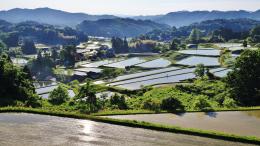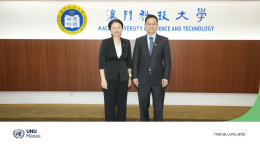A new report provides an overview of the activities and achievements of the International Partnership for the Satoyama Initiative (IPSI) towards realising the vision of societies in harmony with nature. Since launching in 2010 IPSI has grown to a network of 292 organisations across the globe working to foster sustainable human–nature relationships. The International Partnership for the Satoyama Initiative (IPSI) Decade Report 2010–2022 showcases flagship activities, policy and scientific impacts, and contributions towards achieving the Aichi Biodiversity Targets and the SDGs during the partnership’s first 12 years. The report was launched at the 2022 UN Biodiversity Conference (CBD COP15) in Montreal, Canada as part of a UNU-IAS side event on 7 December 2022.
The report outlines the 251 case studies on socio-ecological production landscapes and seascapes (SEPLS) and 58 collaborative activities implemented by IPSI members since 2010. These have provided rich and diverse research findings, advancing understanding of how SEPLS contribute to food and water security, climate change mitigation and adaptation, disaster risk reduction, health, and socio-economic development of local communities.
In addition, the report details how IPSI has contributed to conserving and understanding the multiple values and importance of local and indigenous traditions, as well as culture for the sustainable use of SEPLS. It explores the implications of the COVID-19 pandemic, including how SEPLS were impacted and the relevant benefits they provide for human health and well-being.
Future priorities for IPSI are also identified, focused on strengthening the partnership’s impact in alignment with the post-2020 global biodiversity framework.
The report is available to download from UNU Collections.




